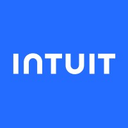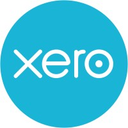QuickBooks vs Xero (2026 Comparison)
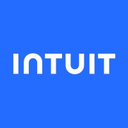
QuickBooks offers a comprehensive suite of accounting features, making it a top choice for businesses seeking robust financial management. Its advanced payroll and invoicing capabilities are standout features.
- Comprehensive financial reporting
- Advanced payroll management
- Robust invoicing features
- Steep learning curve
- Higher cost for advanced features
Free plan?
YesStarting price
$17.50 per month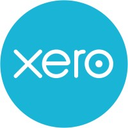
Xero provides a user-friendly interface and excellent mobile access, making it ideal for business owners who value flexibility. Its seamless bank reconciliation is a major advantage.
- User-friendly interface
- Excellent mobile access
- Seamless bank reconciliation
- Limited payroll features
- Longer customer support response
Free plan?
YesStarting price
$2.90 per monthWhat is QuickBooks?
QuickBooks is a comprehensive accounting software designed to help businesses manage their finances efficiently. It offers features like invoicing, expense tracking, and financial reporting, making it a go-to solution for small to medium-sized businesses. With its user-friendly interface and robust functionality, QuickBooks simplifies complex accounting tasks, allowing you to focus on growing your business. Whether you're a freelancer or a business owner, QuickBooks provides the tools you need to keep your financials in check.
What is Xero?
Xero is a cloud-based accounting software that caters to small and medium-sized businesses. It offers a range of features including invoicing, bank reconciliation, and financial reporting, all accessible from any device with internet connectivity. Xero's intuitive design and seamless integration with third-party apps make it a favorite among business owners who value flexibility and efficiency. With Xero, you can manage your finances on the go, ensuring you stay on top of your business's financial health.
Pros and Cons of QuickBooks vs Xero

Pros & Cons of QuickBooks
- QuickBooks offers detailed financial reporting features that provide valuable insights into your business's financial health. Its customizable reports and advanced analytics make it a powerful tool for decision-making.
- With QuickBooks, managing payroll is a breeze. Its automation features streamline the payroll process, saving time and reducing errors, making it ideal for businesses with complex payroll needs.
- QuickBooks' invoicing system allows you to create and send professional invoices with ease. Its customization options and automation features make it a powerful tool for managing billing.
- QuickBooks offers a wide range of features, which can be overwhelming for new users. It may take some time to master the software and fully utilize its capabilities.
- While QuickBooks offers a comprehensive suite of features, accessing advanced functionalities may require a higher subscription cost, which could be a consideration for budget-conscious users.

Pros & Cons of Xero
- Xero's intuitive design makes it easy for users to navigate and manage their finances without a steep learning curve. Its user-friendly interface is a major advantage for those new to accounting software.
- Xero offers seamless mobile access, allowing you to manage your finances on the go with its user-friendly app. This feature is ideal for business owners who need flexibility and mobility.
- Xero excels in bank reconciliation, offering a seamless process that saves time and reduces errors. Its intuitive design and automation features make it a favorite among users.
- While Xero offers basic payroll management, it may not meet the needs of businesses with complex payroll requirements. Users seeking advanced payroll features may need to look elsewhere.
- Some users report longer response times from Xero's customer support, which could be a concern for those who require prompt assistance. It's important to consider this when evaluating support options.
QuickBooks vs Xero: At A Glance
Value to Price
QuickBooks offers a comprehensive suite of features that justify its pricing, making it a valuable investment for businesses seeking robust accounting solutions. Xero, while slightly more affordable, provides excellent value with its cloud-based accessibility and integration capabilities. If you're looking for a cost-effective solution with strong features, Xero might be the better choice.
Ease of Use
Xero shines with its intuitive interface, making it easy for users to navigate and manage their finances without a steep learning curve. QuickBooks, while feature-rich, may require a bit more time to master. If ease of use is your priority, Xero is likely the better option.
Functionality
QuickBooks excels in functionality, offering a wide range of features that cater to various business needs, from invoicing to payroll management. Xero also provides strong functionality but may not match QuickBooks in terms of depth. For businesses needing extensive features, QuickBooks is the superior choice.
Scalability
Both QuickBooks and Xero offer scalable solutions, but QuickBooks has a slight edge with its ability to handle more complex business structures as they grow. Xero is ideal for small to medium-sized businesses looking for a scalable solution without overwhelming complexity.
Integrations
Xero offers a wide range of integrations with third-party apps, making it a flexible choice for businesses that rely on multiple tools. QuickBooks also provides strong integration options, but Xero's extensive app marketplace gives it a slight advantage. If integrations are crucial, Xero is a strong contender.
Customer Support
QuickBooks provides reliable customer support, with various channels available for assistance. Xero's support is also commendable, but some users report longer response times. If prompt customer support is essential, QuickBooks may be the better option.
Security
Both QuickBooks and Xero prioritize security, offering robust measures to protect user data. QuickBooks has a slight edge with its advanced security features and regular updates. If security is a top concern, QuickBooks is a reliable choice.
Overall Rating
QuickBooks scores higher overall due to its comprehensive features and strong functionality, making it a top choice for businesses seeking a robust accounting solution. Xero, while slightly behind, remains a strong contender with its ease of use and integration capabilities.
QuickBooks vs Xero: A Detailed Breakdown of Key Features
Invoicing
QuickBooks offers a robust invoicing system that allows you to create and send professional invoices with ease. Its customization options and automation features make it a powerful tool for managing billing. Xero also provides strong invoicing capabilities, with a user-friendly interface and seamless integration with other financial tools. If you need advanced invoicing features, QuickBooks is the better choice.
Expense Tracking
Both QuickBooks and Xero offer excellent expense tracking features, allowing you to monitor and categorize expenses efficiently. QuickBooks provides more detailed reporting options, making it ideal for businesses that require in-depth financial analysis. Xero's expense tracking is straightforward and easy to use, perfect for those who prefer simplicity. If detailed expense tracking is crucial, QuickBooks is the way to go.
Bank Reconciliation
Xero excels in bank reconciliation, offering a seamless process that saves time and reduces errors. Its intuitive design and automation features make it a favorite among users. QuickBooks also provides strong bank reconciliation capabilities, but Xero's ease of use gives it an edge. If bank reconciliation is a priority, Xero is the better option.
Financial Reporting
QuickBooks stands out with its comprehensive financial reporting features, providing detailed insights into your business's financial health. Its customizable reports and advanced analytics make it a powerful tool for decision-making. Xero offers solid reporting capabilities, but QuickBooks' depth and flexibility make it the superior choice for businesses needing extensive financial analysis.
Payroll Management
QuickBooks offers a robust payroll management system, allowing you to handle employee payments and tax calculations with ease. Its automation features streamline the payroll process, saving time and reducing errors. Xero provides basic payroll management, but QuickBooks' advanced features make it the better choice for businesses with complex payroll needs.
Mobile Access
Xero offers excellent mobile access, allowing you to manage your finances on the go with its user-friendly app. QuickBooks also provides strong mobile capabilities, but Xero's seamless integration and intuitive design make it a favorite among users who prioritize mobile access. If managing finances on the go is important, Xero is the better option.
Pricing Comparison of QuickBooks and Xero
We’ve compiled the pricing tables and highlighted the key features of both QuickBooks and Xero to aid in your decision-making process. Let’s explore what each platform has to offer.
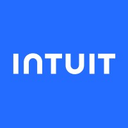
QuickBooks Pricing Plans
- Automate bookkeeping tasks to save time and reduce errors.
- Capture and organize receipts for easy tracking and reporting.
- Track mileage automatically to maximize tax deductions.
- Generate general reports to understand business performance.
- Handle multiple currencies for international transactions.
- Connect up to 3 sales channels for streamlined operations.
- Access enhanced reports for deeper business insights.
- Collaborate with up to 3 users for better teamwork.
- Analyze project profitability to optimize resources.
- Connect all sales channels for comprehensive sales management.
- Access comprehensive reports for detailed financial analysis.
- Collaborate with up to 5 users for enhanced productivity.
- Sync data with Excel for seamless data management.
- Access powerful reports for strategic decision-making.
- Manage up to 25 users for large team collaboration.
- Utilize 24/7 support and training for continuous assistance.
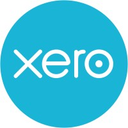
Xero Pricing Plans
- Enter up to 5 bills for efficient tracking.
- Reconcile bank transactions with ease.
- Capture bills and receipts using Hubdoc integration.
- Access short-term cash flow and business snapshot.
- Enter unlimited bills for comprehensive tracking.
- Bulk reconcile transactions for efficiency.
- Advanced reporting and analytics for insights.
- Enhanced security features for data protection.
- Advanced project tracking and management tools.
- Priority customer support for quick resolutions.
- Comprehensive expense management features.
- Customizable dashboards for personalized insights.
Our Rating Methodology
We rigorously evaluate each accounting software, focusing on key factors like functionality, ease of use, and integrations. By analyzing user reviews and testing features, we ensure our recommendations meet diverse business needs. Each factor is weighted to deliver a reliable final rating, helping you make informed decisions.
QuickBooks or Xero: Which One Matches Your Business Needs?
Choose QuickBooks If You Need ...
- Advanced financial management
If you need a comprehensive accounting solution with advanced financial management features, QuickBooks is the ideal choice. Its robust functionality and detailed reporting make it perfect for businesses seeking in-depth financial insights.
- Complex payroll needs
If your business has complex payroll requirements, QuickBooks offers advanced payroll management features that streamline the process. Its automation capabilities save time and reduce errors, making it a top choice for payroll management.
Choose Xero If You Need ...
- User-friendly interface
If you prefer a user-friendly interface that simplifies financial management, Xero is the better option. Its intuitive design and seamless navigation make it easy for users to manage their finances without a steep learning curve.
- Mobile financial management
If managing your finances on the go is important, Xero's excellent mobile access makes it the ideal choice. Its user-friendly app allows you to stay on top of your business's financial health from anywhere.
Frequently Asked Questions
 Which software is better for small businesses?
Which software is better for small businesses?
 How do QuickBooks and Xero handle invoicing?
How do QuickBooks and Xero handle invoicing?
 Which tool offers better customer support?
Which tool offers better customer support?
 Is Xero suitable for businesses with complex payroll needs?
Is Xero suitable for businesses with complex payroll needs?
 Can I manage my finances on the go with these tools?
Can I manage my finances on the go with these tools?
 Which software offers better integration options?
Which software offers better integration options?

Martin Lunendonk
Martin Lunendonk is a senior tech writer specializing in website builders, web hosting, and ecommerce platforms. With a background in finance, accounting, and philosophy, he has founded multiple tech startups and worked in medium to large tech companies and investment banking, bringing deep expertise and reliable insights to his software reviews.

